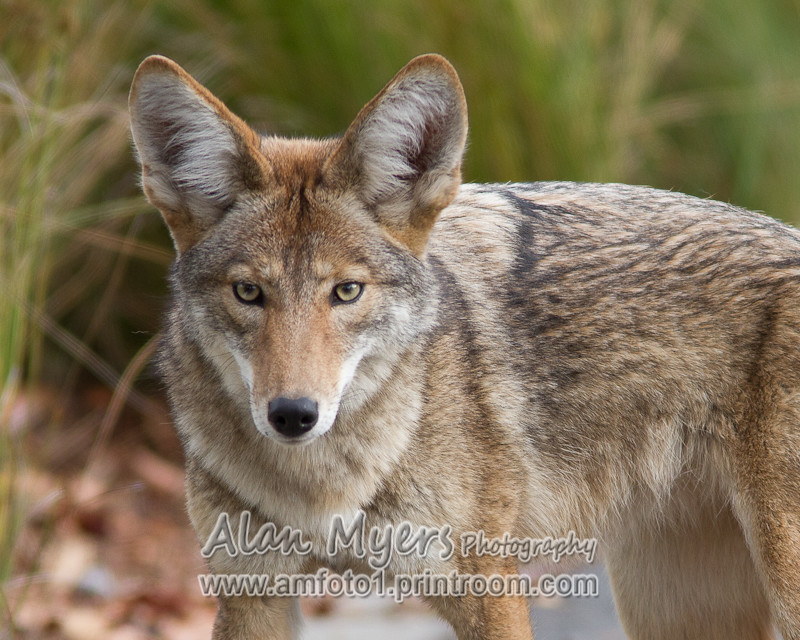Need opinion on new camera or new lens.
Aug 27, 2017 19:45:42 #
Mr.Ft
Loc: Central New Jersey
My wife is looking for more reach from her camera/lens. Now she has a Canon 80D with a 70-200 F4 as her largest lens. We looked at the canon 100 - 400 ll but she thought it was to heavy for her, so I was thinking of getting her a Sony RX10 lll which goes to 600mm. My question is will she see a big change in image quality? Would there be a big learning curve? Would I be better to just get her a 1.4 lll extender? any help would be greatly appreciated.
Thanks
Tom
Thanks
Tom
Aug 27, 2017 20:22:09 #
Tamron just released an 18-400mm f/3.5-6.3 lens for cropped sensor cameras. It's definitely not in the same league as the Canon 100-400 II but it would be lighter at 710 grams versus 1550 grams. Another option would be the Canon EF 70-300mm f/4-5.6 IS USM lens. It's only 630 grams. You would be much better off keeping your 80D rather than getting the RX10 III.
Aug 27, 2017 20:24:45 #
Mr.Ft wrote:
My wife is looking for more reach from her camera/lens. Now she has a Canon 80D with a 70-200 F4 as her largest lens. We looked at the canon 100 - 400 ll but she thought it was to heavy for her, so I was thinking of getting her a Sony RX10 lll which goes to 600mm. My question is will she see a big change in image quality? Would there be a big learning curve? Would I be better to just get her a 1.4 lll extender? any help would be greatly appreciated.
Thanks
Tom
Thanks
Tom
The 100-400 is a spectacular lens. Nothing touches it for even triple the price.
Aug 27, 2017 21:05:53 #
Try the Nikon B700...a Superzoom Bridge camera, with a lens equivalent to a 24-1,440mm lens...60X...in a small, lightweight, unit.
Aug 27, 2017 21:16:51 #
I shoot at times up to 1200mm and there is nothing like it! 200's 400's and 600's can not match the quality and detail unless you are running a 48mp sensor and then you must crop to 32 or 24 to bring out the subject. Sad really.
Aug 27, 2017 21:38:57 #
Gene51 wrote:
The 100-400 is a spectacular lens. Nothing touches it for even triple the price.


Aug 27, 2017 22:36:01 #
Mr.Ft wrote:
My wife is looking for more reach from her camera/lens. Now she has a Canon 80D with a 70-200 F4 as her largest lens. We looked at the canon 100 - 400 ll but she thought it was to heavy for her, so I was thinking of getting her a Sony RX10 lll which goes to 600mm. My question is will she see a big change in image quality? Would there be a big learning curve? Would I be better to just get her a 1.4 lll extender? any help would be greatly appreciated.
Thanks
Tom
Thanks
Tom
I own both the RX10 III and have the 100-400 which I use on the only Canon body I have left the SL1 (after switching to Sony). The RX10 III is "almost" the equal but does not match the IQ of the Canon zoom. However the Sony is a remarkable camera and costs less than the zoom (I purchased mine on Ebay for $1100). I have attached two photographs taken at 600mm equivalent with the Sony RX10M3
Aug 28, 2017 01:18:34 #
wdross
Loc: Castle Rock, Colorado
Mr.Ft wrote:
My wife is looking for more reach from her camera/lens. Now she has a Canon 80D with a 70-200 F4 as her largest lens. We looked at the canon 100 - 400 ll but she thought it was to heavy for her, so I was thinking of getting her a Sony RX10 lll which goes to 600mm. My question is will she see a big change in image quality? Would there be a big learning curve? Would I be better to just get her a 1.4 lll extender? any help would be greatly appreciated.
Thanks
Tom
Thanks
Tom
My vote would be for a 1.4X or 2.0X teleconverter. Yes, you will lose some image quality with each increase in teleconverter power. But I feel the slight loss in image quality and small additional weight will out weigh the cost of the RX10 III and it's image quality.
Aug 28, 2017 07:37:49 #
you should look at mirrorless fuji X-T1 cameras.they are very versatile and easy to carry around and less intimidating.
Aug 28, 2017 08:50:45 #
I have both the Fuji T1 and the Sony RX100V4. They are both astounding; but, the zoom on the Sony is limited. I am the photographer for our local fire department and use the Fuji T1 for night shots, without flash, and when the cameral might get wet.
If you can swing it, get both.
If you can swing it, get both.
Aug 28, 2017 09:20:50 #
ronf78155
Loc: Seguin Texas
I also have the 80D and use a Canon 70-200 f4 IS.......I have the 1.4 multiplier and the combo is fantastic and adds little weight and size.
Really tough to beat the 80D......keep it !
Really tough to beat the 80D......keep it !
Aug 28, 2017 09:23:04 #
What does she need the reach for? As others have said, the 100-400 II is a wonderful lens. But, large and heavy is accurate and unnecessary, if just for walking around with a longer zoom. I've kept my 70-200 f/4L (the non IS f/4) because of the excellent image quality and the relatively lightweight and size by comparison. I don't need the weight of the 100-400L for just general purposes.
If she's interested in wildlife, even just birds in the backyard, the 100-400l II is the best choice, particularly when coupled with the 1.4x III on a 80D crop sensor. But, for just general purpose, there's also the 70-300L IS (somewhat large due to the IS) and the new(ish) EF 70-300mm f/4-5.6 IS II. This non L IS-enabled 70-300 zoom comes in at 1.56 lb / 708g. Note though, none of the EF 70-300 zoom models support the use of the 1.4x so these are not "buy and extend" options with the 1.4x.
Rather than just buying ideas, visit LensRentals.com and rent for a weekend or week the candidate ideas for a modest investment to confirm size and weight and image performance.
If she's interested in wildlife, even just birds in the backyard, the 100-400l II is the best choice, particularly when coupled with the 1.4x III on a 80D crop sensor. But, for just general purpose, there's also the 70-300L IS (somewhat large due to the IS) and the new(ish) EF 70-300mm f/4-5.6 IS II. This non L IS-enabled 70-300 zoom comes in at 1.56 lb / 708g. Note though, none of the EF 70-300 zoom models support the use of the 1.4x so these are not "buy and extend" options with the 1.4x.
Rather than just buying ideas, visit LensRentals.com and rent for a weekend or week the candidate ideas for a modest investment to confirm size and weight and image performance.
Aug 28, 2017 10:08:24 #
You can check out Tara's 100-400 shots at Black Rock Photography on Facebook. It is probably her favorite lens. Perhaps consider that lens and a good monopod and tilt head to help support the weight. You will not regret that lens. The other option that I like is the 70-200 2.8II with the version III 2.0 TC. That is a combo that gives nice results and the 70-200 2.8 II is an awesome lens in its own right although heavier than the 4.0 version. You can get a nice strap system to carry the weight or a Spider or Think Tank belt based system of pouches too...
Best,
Todd Ferguson
Best,
Todd Ferguson
Aug 28, 2017 10:40:31 #
Mr.Ft wrote:
My wife is looking for more reach from her camera/lens. Now she has a Canon 80D with a 70-200 F4 as her largest lens. We looked at the canon 100 - 400 ll but she thought it was to heavy for her, so I was thinking of getting her a Sony RX10 lll which goes to 600mm. My question is will she see a big change in image quality? Would there be a big learning curve? Would I be better to just get her a 1.4 lll extender? any help would be greatly appreciated.
Thanks
Tom
Thanks
Tom
The Sigma 100-400 C is about a half pound lighter.
Aug 28, 2017 12:15:41 #
amfoto1
Loc: San Jose, Calif. USA
Mr.Ft wrote:
....My question is will she see a big change in image quality?...
Hi Tom,
I would not expect the Sony RX10 lll "bridge" camera to have as good image quality, especially at higher ISOs.
First, the Sony camera uses a so-called 1" sensor.... that measures 8.8x13.2mm... or about 116 square mm area. Into that it crowds 20 million pixel sites, or about 172,000 pixel sites per square mm.
This comparatively small sensor is what gives that Sony an "effective 35mm equivalent 24-600mm lens". The actual focal length range of the lens it uses is 8.8mm-220mm.
Compare to the Canon 80D DSLR, which uses a much larger, so-called "APS-C" that measures 15x22.5mm.... or 337 square mm. In this case 24 million pixel sites works out to about 71,000 pixel sites per sq. mm. Much less crowded, which almost always makes for better image quality and higher usable ISOs.
But even the Canon 80D's sensor is smaller than a 35mm film image, so the actual 70-200mm your wife is using on it is "equivalent to 112-320mm" on full frame/film. Add a 1.4X teleconverter to the 70-200mm and it will be "equivalent to 157-448mm on film/FF".
Canon 100-400mm lens weighs in about 3.5 lb., which is actually fairly reasonable for a lens with that much reach. The actual 100-400mm used on 80D is "equivalent to 160-640mm".
There is a new Sigma 100-400mm that's smaller than the Canon, and about half the cost or less... but doesn't weigh much less than the Canon and doesn't have any provision for a tripod mounting ring, which the Canon has. While the Simga appears to have pretty darned good image quality, it doesn't use fluorite the way the EF 70-200mm f/4 and EF 100-400mm IS USM II lenses do, part of the reason they offer such superb image quality.
Something you might want to consider is getting a good, high quality 1.4X now to use with her 70-200mm... then later add a longer prime like the Canon 300mm f/4L IS USM. That lens is bigger and heavier than the EF 70-200/4. But at about 2.5 lb. it's lighter than the 100-400mm and a bit smaller diameter, too. I use a 300/4 handheld for many hours on end, which is tiring but not impossible or as difficult as trying to handhold the 100-400mm for the same length of time (I use one of those, too... though more often on a tripod or monopod).
On her 80D the 300mm f/4 alone will be "equivalent to 480mm on film/FF"... and with the 1.4X added it will be "equivalent to 672mm". I often use my 300/4 with Canon 1.4X II and the image quality from the combo is excellent... there's very little loss of IQ. This was shot with the 300/4 + 1.4X....

My point is that bridge cameras and other non-interchangeable lens cameras often cite "35mm film equivalent" lens focal lengths that make them sound impressive. But they actually achieve that "equivalence" by using smaller sensors... The don't actually have longer focal length lenses. In order to compare apples to apples, you have to also convert the focal lengths on the 80D to "35mm film equivalent". And the 80D APS-C sensor that means applying a 1.6X lens factor to the focal length of any lenses you might be considering. (The 1" sensor camera has a "2.7X lens factor").
But this still doesn't take into account that smaller, far more crowded sensors will inevitably cost some image quality and will be a lot less usable at higher ISOs. I don't have a Sony RX10 lll, so can't say for sure... but I'd be surprised if anything higher than ISO 400 or maybe 800 were usable. I don't use 80D, but do use 7D Mark II with slightly older sensor technology (20MP APS-C, instead of 24MP APS-C the 80D uses)... and I pretty regularly get usable images at ISO 5000 and 6400.... sometimes even use ISO 12800 or 16000, though they tend to need more post-processing work.
If you want to reply, then register here. Registration is free and your account is created instantly, so you can post right away.










